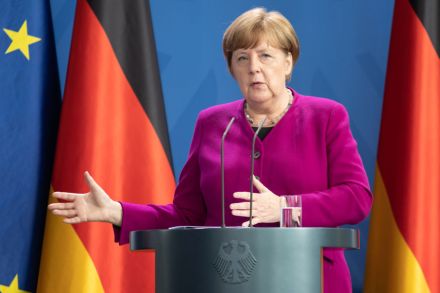The battle over a German town’s black patron saint
At first glance, the pretty German town of Coburg seems an unlikely arena for the latest skirmish in the culture wars. The birthplace of Prince Albert (and one of Queen Victoria’s favourite holiday spots), it’s a quaint and tranquil place which miraculously came through the last century virtually unscathed. Yet now this historic backwater finds itself at the centre of controversy, on account of its patron saint, St Maurice, aka the Coburg Moor. St Maurice is a ubiquitous presence in Coburg. His profile adorns the town’s coat of arms, and numerous public buildings. It’s even on the manhole covers. Now Alisha Archie and Juliane Reuther (who live in Berlin but

















